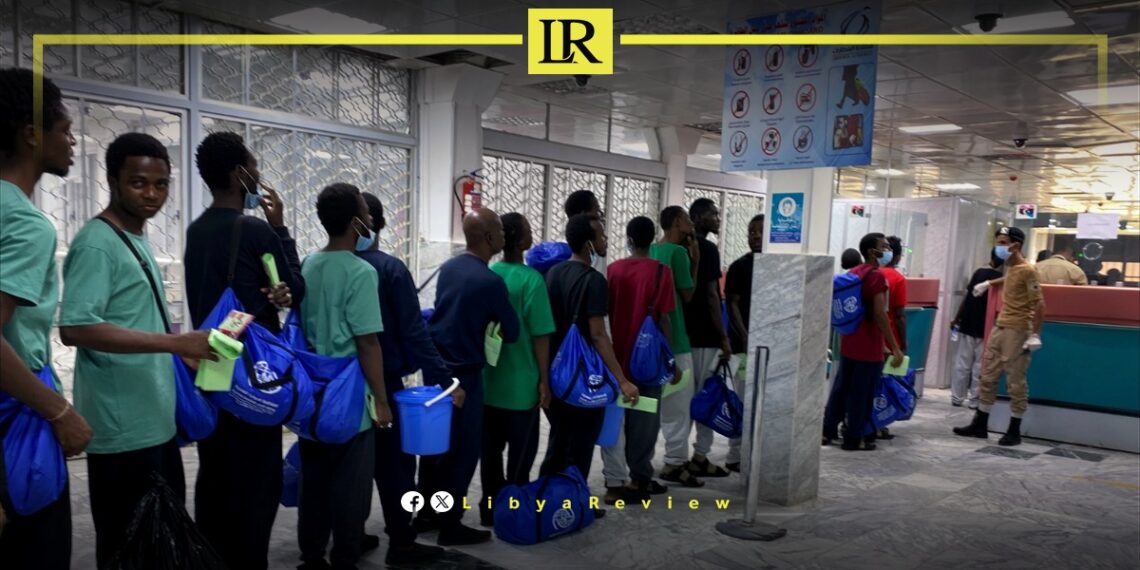On Thursday, the International Organization for Migration (IOM) facilitated two significant Voluntary Humanitarian Return (VHR) flights this week. On August 6, 2024, a flight departed from Sabha, transporting 163 migrants to Lagos, Nigeria. The following day, another flight carried 129 migrants to Mali. These VHR flights offer crucial opportunities for migrants to return safely to their home countries and rebuild their lives with dignity.
These operations provide essential opportunities for migrants to return safely to their home countries and rebuild their lives with dignity.
The VHR program is a cornerstone of IOM’s mission, offering a vital lifeline to migrants stranded in challenging situations. Many of these individuals face severe hardships, including lack of access to basic services, exploitation, and human rights abuses. The VHR program ensures their safe passage home and includes reintegration assistance to help returnees start anew in their communities.
In addition to these humanitarian efforts, IOM Libya is actively working to enhance migration governance in the country. As part of the Africa Regional Migration Program (#ARMP), IOM Libya recently convened a key coordination meeting in Benghazi with committees from the House of Representatives (HoR). This meeting aimed to strengthen the HoR’s role in migration governance, focusing on improving protection mechanisms and creating regular migration pathways.
Libya has long been a critical transit point for migrants attempting to reach Europe. The instability following the 2011 revolution has exacerbated the challenges faced by migrants, increasing their vulnerability to trafficking, smuggling, and exploitation. The international community, including IOM, has been working tirelessly to address these issues through various initiatives, such as the VHR program and the Africa Regional Migration Program.
Beyond the VHR efforts, IOM’s mission in Libya includes a wide range of activities aimed at improving the overall migration landscape. These initiatives involve providing direct assistance to migrants, supporting community stabilization, and enhancing the capacity of local authorities to manage migration effectively.


